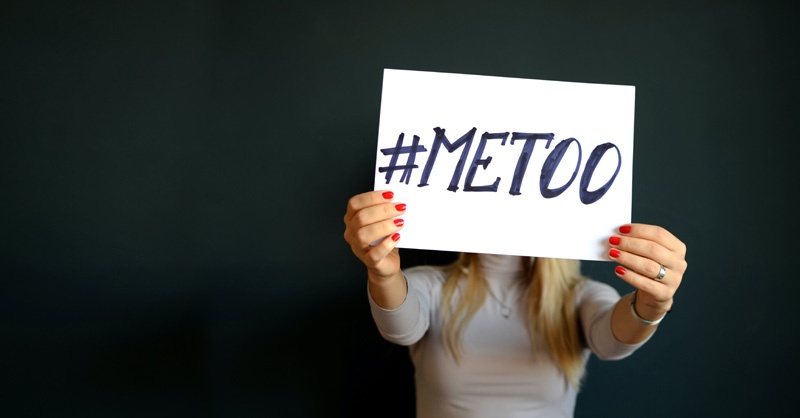
were you wearing? Were you wearing a tight or short dress? Were you wearing a lot of makeup? Which place where you heading to? What time was it? Unfortunately, these are the questions being asked if a woman complains about being harassed, instead of asking: Who was it? Were you able to take a photo or record a video of him? Did you note his car's plate number? The victim is the one who is blamed.
Recent reports about Saudi Arabia introducing tougher penalties against harassment have sparked a debate about the topic in Kuwait. Saudi Arabia's Public Security Department launched a new version of its app "Kolonna Amn" (We Are All Security) with added features such as reporting harassment, human trafficking and cybercrimes. Experts believe that the inclusion of these crimes in the app will serve as a deterrent, according to Arab News.
This led to several Kuwaiti fashionistas and bloggers to speak up about their personal experiences on their social media platforms. Many women have reacted and shared their experiences about harassment, which became a hot topic on Twitter with the hashtag "#expose the harasser".

What is harassment? Harassment is any behavior, whether physical, verbal, written or psychological, that is unwanted and unwelcomed, and may offend or humiliate an individual. This definition applies to both men and women equally. The harassment can be at your workplace, street, home or school. It is a boundless subject - it can be handled from different angles and perspectives.
As a woman, I will talk about street harassment, one of the most common types of harassment and which I can relate to the most, since I have personal experience of it. So what is street harassment? It is the dirty comments, requests and demands. Staring and commenting on physical appearance, such as someone's body or the clothing they are wearing. Continuing to talk to someone after they have asked to be left alone. Flashing, following or stalking. Groping, intentionally invading personal space or blocking the way. Persistent requests for someone's name, number or other information. Public touching and whistling.
Unfortunately, I doubt there's any woman who has not been exposed to at least one of the acts mentioned above, even if she was wearing a niqab. If a woman has not been exposed to any of these acts, then she must consider herself to be among the lucky ones.
I cannot deny that maybe some women (a minority) consider staring or commenting on physical appearance as okay or a compliment and do not make a big deal out of it. But no form of harassment is okay - and it is never a compliment. Being harassed in public can make you worried about your physical safety and creates an environment of fear and intimidation.
With increasing harassment and sexual abuse, the question remains: How can it be stopped against girls and women? The answer can be in the following:
1) Home: It all starts from home. Instead of only teaching women to dress properly and decently, parents should teach boys from a young age to respect women, whatever they are wearing or doing. Parents should be role models at home and there must be respect between them in front of their children. Because children see, children do.
2) School: School is the second home. Raising children's awareness in school is very important. Educating them and discussing in detail - not talk about it briefly - why it is unacceptable, disrespectful and offensive not to respect women in all matters.
3) Law: Enforce serious and tough penalties on abusers and harassers. Let them be a deterrent for others. Individuals should be aware that certain behaviors may result in penalties.
4) App: A simple and direct application to report these incidents, where victims can easily and instantly report cases, and guarantee that it is confidential.
5) Social media: Campaigns such as #Lan_asket that was launched to provide a platform where victims of harassment can speak up and share their experiences.
In the 21st century, women should be able to feel comfortable and safe in public without the fear of being harassed, and deserve to be treated with dignity and respect. This subject should not be considered a taboo due to cultural influences, and women should not be scared to speak up anymore.
Unfortunately, we have a social ideology where women are assumed to be the reason behind harassments. However, women should understand that they are not alone; it is not their fault - this is not normal or acceptable. They should not be blamed as they are the victims in this situation and not the other way around.
[email protected]



